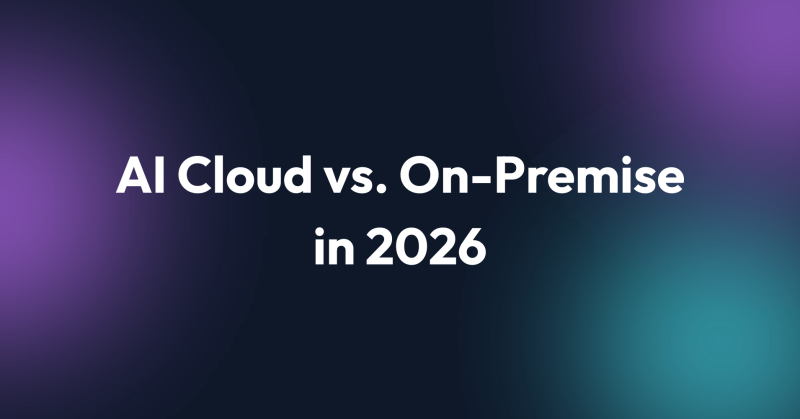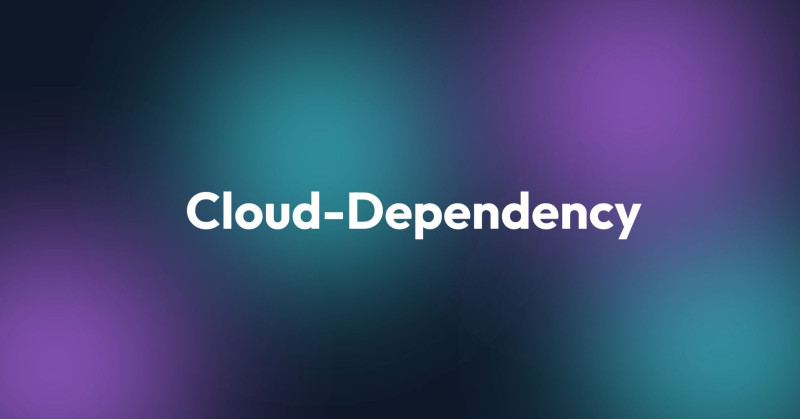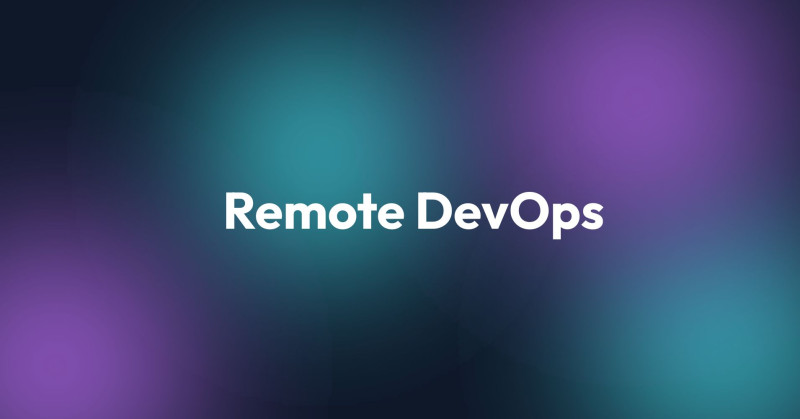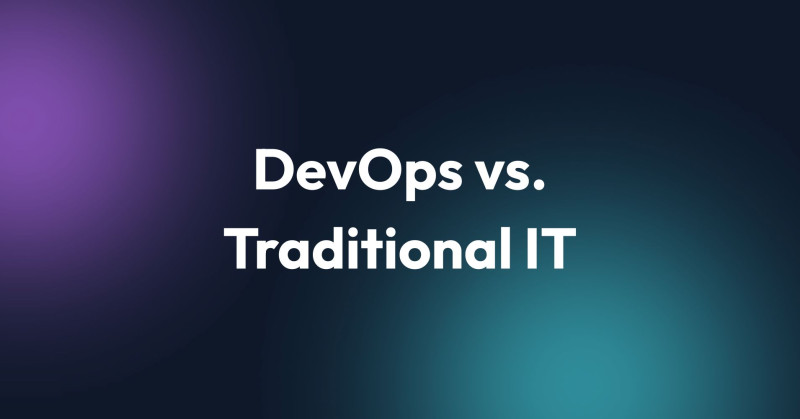Artificial Intelligence is rapidly transforming industries and society, offering innovative solutions to complex challenges. The concept of "AI for Social Good" harnesses this technology to address societal issues, from healthcare and education to environmental sustainability and poverty alleviation. As AI continues to evolve, it is crucial to explore its potential for creating a positive social impact and consider the ethical implications of its deployment. By using AI effectively, we can deliver positive social outcomes and tackle some of the most pressing global challenges.
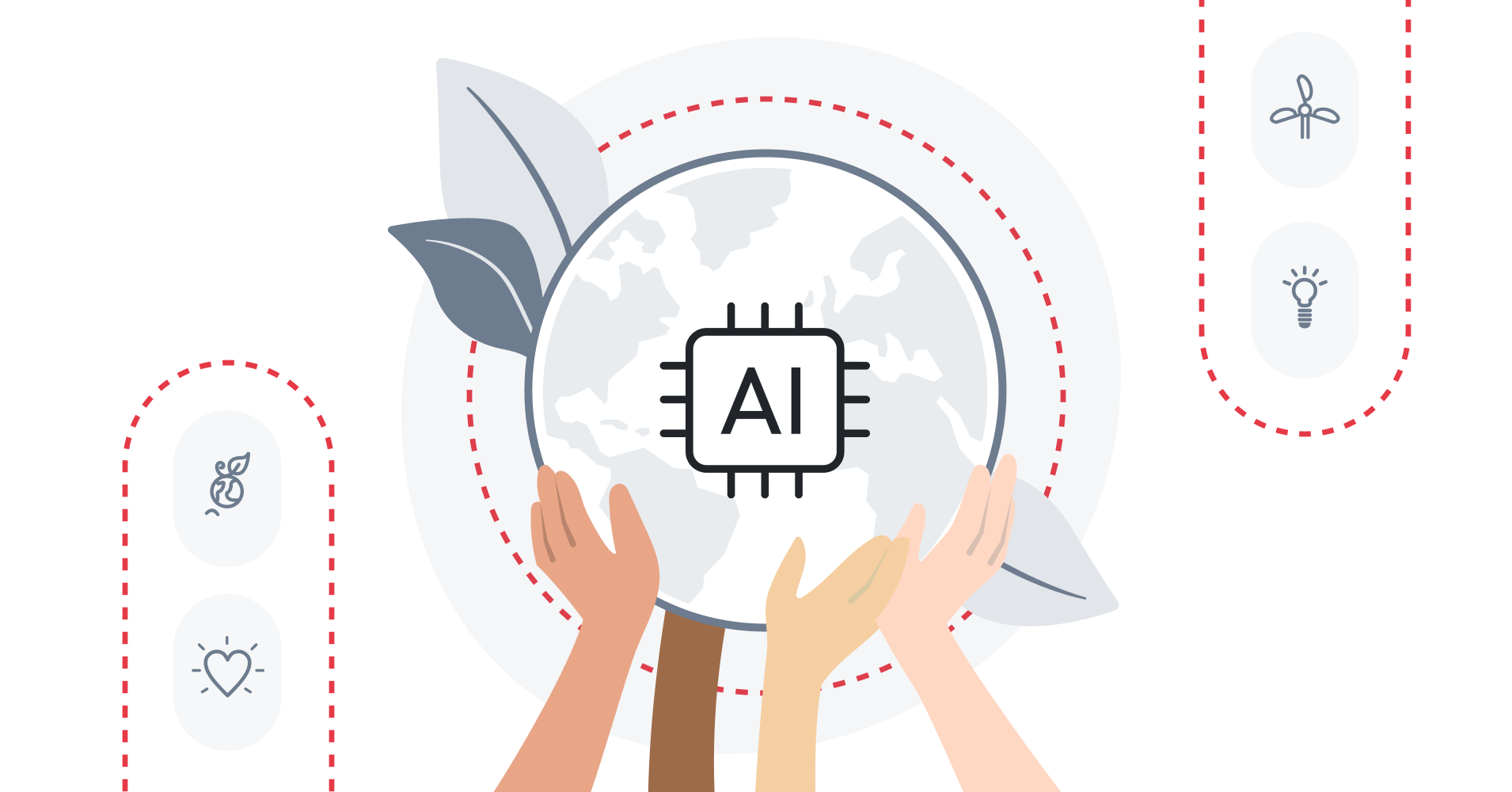
The Potential of Artificial Intelligence for Social Good
AI holds tremendous potential to address a range of challenges that have long plagued society. AI’s ability to analyze vast amounts of data and make predictions offers new ways to solve problems that were previously intractable.
Let’s take a look at the environmental issues first. AI can be used to monitor environmental changes, optimize resource management, and improve climate modeling. By applying AI capabilities, such as natural language processing and predictive analytics, we can better understand and address environmental sustainability.
In the healthcare sector, using AI for early diagnosis, personalized treatments, and epidemic prediction enhances our ability to deliver better health outcomes. AI-powered diagnostic tools, such as those using generative AI for medical imaging, can detect diseases with greater accuracy and speed, potentially saving lives.
AI can make a positive impact also on education. AI personalizes learning, making education more accessible and effective for underserved communities. Educational platforms powered by AI can adapt to individual students' needs, providing customized learning experiences that improve outcomes and bridge educational gaps.
Can AI reduce poverty? Although it's a complex challenge, AI technology can support financial inclusion and social welfare programs, helping to alleviate poverty. AI can identify at-risk populations and direct resources where they are most needed, particularly in lower-income countries and middle-income countries.
Real-World Applications and Case Studies
The real-world applications of AI for social good are diverse, showcasing how AI can be used to address social issues and improve lives across different sectors.
Healthcare Innovations
AI systems are increasingly used in medical imaging to detect conditions like cancer. These tools analyze images faster and with higher accuracy than human doctors, leading to earlier diagnosis and better patient outcomes.
AI also accelerates the discovery of new drugs and tailors treatments to individual patients, improving efficacy and reducing side effects.
Environmental Protection
AI application aid in monitoring endangered species through image recognition and tracking systems, helping conservationists protect biodiversity.
AI models predict natural disasters, such as earthquakes and floods, allowing for timely evacuations and resource allocation.
Social Welfare
AI models can predict individuals at risk of homelessness, enabling intervention before it occurs. This proactive approach can help reduce homelessness rates and improve social services.
AI can improve public services as well, making them more efficient and accessible to all citizens.
Education and Accessibility
AI tools assist in special needs education by adapting learning materials to meet the specific needs of students with disabilities.
With the help of artificial intelligence, it's possible to create content accessible to visually and hearing-impaired individuals, promoting inclusivity in education and communication.
Challenges in Using AI for Social Good
While AI offers significant benefits, it also presents challenges that must be addressed to ensure its positive impact.
Ethical Implications
AI’s ability to process and analyze personal data raises privacy concerns. It is crucial to establish ethical guidelines to protect individuals' rights, especially in the context of training data and potential malicious use of AI. Additionally, the potential misuse of AI, such as in surveillance or manipulation, must be monitored and regulated to prevent harm.
Developing accurate and unbiased AI models is a significant challenge. Biases in data can lead to discriminatory outcomes, highlighting the need for transparency and accountability in AI systems. Furthermore, the complexity of AI systems necessitates explainability, allowing users to understand how decisions are made and ensuring trust in AI technologies.
Social and Economic Impact
The rise of AI and automation could lead to job displacement, particularly in sectors reliant on manual labor. It is essential to consider the social implications and provide support for workers transitioning to new roles. Ensuring that the benefits of AI are distributed equitably is crucial to prevent widening social and economic disparities, especially in lower-income and middle-income countries.
How AI Can Support Sustainable Development Goals?
The United Nations Sustainable Development Goals (SDGs) are a global blueprint for achieving a better and more sustainable future for all by 2030.
These 17 goals address a wide range of global challenges, including poverty, inequality, climate change, environmental degradation, peace, and justice.
Artificial intelligence can significantly contribute to achieving these goals by offering innovative solutions, optimizing processes, and enabling more effective decision-making. Let's take a look at key aspects SDGs:
1. Eradicating Poverty
Eradicate extreme poverty for all people everywhere, ensuring that everyone has access to basic resources and economic opportunities to improve their livelihoods.
AI for Poverty Alleviation:
Predictive Analytics: AI can analyze data to predict and identify populations at risk of falling into poverty, allowing for timely interventions.
Financial Inclusion: AI-driven platforms can offer financial services to underserved communities, helping them access credit, insurance, and savings, which are crucial for economic stability.
2. Eradicating Hunger
End hunger, achieve food security, and promote sustainable agriculture by improving food production systems and ensuring that everyone has access to sufficient and nutritious food.
AI in Agriculture:
Precision Farming: AI can optimize farming practices by analyzing data on soil health, weather patterns, and crop growth, leading to increased yields and reduced waste.
Supply Chain Optimization: AI can improve the efficiency of food distribution systems, reducing food loss and ensuring that food reaches those in need.
3. Health
Ensure healthy lives and promote well-being for all ages by improving healthcare systems, reducing disease, and addressing health emergencies.
AI in Healthcare:
Early Diagnosis: AI-powered diagnostic tools can detect diseases earlier and more accurately, improving patient outcomes.
Personalized Medicine: AI can analyze patient data to tailor treatments to individual needs, enhancing the effectiveness of healthcare interventions.
Public Health Monitoring: AI can track and predict the spread of diseases, enabling quicker responses to outbreaks.
4. Education
Provide inclusive and equitable quality education and promote lifelong learning opportunities for all, focusing on eliminating barriers to education and improving educational outcomes.
AI in Education:
Personalized Learning: AI-driven platforms can adapt to the learning pace and style of individual students, improving educational outcomes.
Access to Education: AI can provide educational resources to remote and underserved communities, helping bridge the educational gap.
5. Equal Opportunities
Achieve gender equality and empower all women and girls by eliminating discrimination and violence, ensuring equal opportunities in all aspects of life.
AI for Empowerment:
Addressing Bias: AI can help identify and mitigate gender biases in various systems, from hiring practices to social services, promoting equality.
Supporting Women Entrepreneurs: AI tools can provide women with access to market insights, financial services, and business resources, empowering them to grow their businesses.
6. Water and Sanitation
Ensure availability and sustainable management of water and sanitation for all, aiming to provide safe drinking water and adequate sanitation to everyone.
AI in Water Management:
Water Resource Management: AI can optimize the use of water resources by predicting water demand and monitoring water quality, ensuring efficient and sustainable water use.
Leak Detection: AI systems can detect leaks in water supply systems, reducing water waste and ensuring access to clean water.
7. Energy
Ensure access to affordable, reliable, sustainable, and modern energy for all by promoting renewable energy sources and improving energy efficiency.
AI in Energy Management:
Smart Grids: AI can manage energy distribution efficiently, balancing supply and demand to reduce waste and integrate renewable energy sources.
Energy Optimization: AI can optimize energy use in buildings and industries, reducing costs and carbon footprints.
8. Work
Promote sustained, inclusive, and sustainable economic growth, full and productive employment, and decent work for all by creating job opportunities and ensuring fair labor practices.
AI for Economic Development:
Job Creation: AI can create new job opportunities in emerging industries, while also enabling businesses to operate more efficiently.
Supporting SMEs: AI tools can help small and medium-sized enterprises (SMEs) grow by providing insights into market trends, customer behavior, and operational efficiency.
9. Industry, Innovation, Infrastructure
Build resilient infrastructure, promote inclusive and sustainable industrialization, and foster innovation to drive economic growth and improve quality of life.
AI in Innovation:
Smart Infrastructure: AI can improve the design, construction, and management of infrastructure projects, making them more sustainable and resilient.
Driving Innovation: AI is at the forefront of technological innovation, contributing to advancements in various industries and fostering sustainable industrial growth.
10. Social Inclusion
Reduce inequality within and among countries by ensuring equal opportunities and reducing disparities in income, access to services, and social inclusion.
AI for Social Inclusion:
Targeted Social Programs: AI can help design and implement social programs that are more effective in reaching marginalized and disadvantaged groups.
Reducing Disparities: AI can identify and address inequalities in access to services such as education, healthcare, and financial resources.
11. Sustainable Places to Live
Make cities and human settlements inclusive, safe, resilient, and sustainable by improving urban planning, reducing pollution, and ensuring access to basic services for all.
AI in Urban Planning:
Smart Cities: AI can enhance urban living by optimizing traffic management, waste collection, and energy use, making cities more sustainable and livable.
Disaster Management: AI can predict and manage the impacts of natural disasters, helping cities prepare and respond more effectively.
12. Responsible Production and Consumption
Ensure sustainable consumption and production patterns by promoting resource efficiency, reducing waste, and encouraging sustainable business practices.
AI for Sustainable Practices:
Waste Reduction: AI can optimize production processes to minimize waste and reduce environmental impact.
Sustainable Supply Chains: AI can track and analyze supply chains to ensure they are sustainable, from sourcing raw materials to product disposal.
13. Action for Climate
Take urgent action to combat climate change and its impacts by reducing greenhouse gas emissions, enhancing resilience, and promoting climate adaptation.
AI for Climate Change:
Climate Modeling: AI can enhance climate models, providing more accurate predictions of climate change impacts and helping to inform policy decisions.
Carbon Footprint Reduction: AI can optimize energy use and reduce emissions in various industries, contributing to global climate action efforts.
14. Marine & Ocean Life
Conserve and sustainably use the oceans, seas, and marine resources by reducing pollution, protecting marine ecosystems, and supporting sustainable fishing practices.
AI in Marine Conservation:
Ocean Monitoring: AI can analyze data from satellites and sensors to monitor ocean health, track pollution, and protect marine life.
Sustainable Fisheries: AI can help manage fisheries more sustainably by analyzing fish stocks and preventing overfishing.
15. Land Life
Protect, restore, and promote sustainable use of terrestrial ecosystems, manage forests sustainably, combat desertification, halt biodiversity loss, and prevent degradation of land.
AI for Biodiversity Protection:
Wildlife Conservation: AI can monitor and protect endangered species through image recognition and tracking technologies.
Forest Management: AI can analyze satellite data to monitor deforestation and promote sustainable land use practices.
16. Justice and Peace
Advancing peaceful and inclusive societies, ensuring justice is accessible to all, and establishing effective, accountable, and inclusive institutions at every level.
AI for Good Governance:
Transparency and Accountability: AI can enhance transparency in governance by analyzing data to detect corruption and ensure accountability.
Conflict Prevention: AI can analyze social and political data to predict and prevent conflicts, contributing to global peace efforts.
17. Partnerships
Strengthen the means of implementation and revitalize the global partnership for sustainable development by fostering cooperation between governments, the private sector, and civil society.
AI in Global Collaboration:
Data Sharing: AI facilitates the sharing and analysis of data across borders, enabling global cooperation on issues like climate change and public health.
Supporting Innovation Hubs: AI can help create and support innovation hubs that bring together governments, businesses, and civil society to achieve the SDGs.
The Role of Stakeholders
The successful implementation of AI for social good requires a collaborative effort among various stakeholders.
Governments and Policymakers
Governments play a critical role in regulating AI and ensuring ethical use. They must create frameworks that encourage innovation while protecting citizens' rights. Policymakers should support AI initiatives that address social challenges, providing funding and resources for AI research and deployment.
Private Sector and Tech Companies
Tech companies have a responsibility to develop AI technologies that prioritize social good. This includes ethical AI development and transparent practices. Partnerships between the private sector, NGOs, and governments can amplify the impact of AI-driven social initiatives.
Non-Governmental Organizations (NGOs) and Academia
NGOs and academic institutions are essential in advocating for and implementing AI projects with a positive social impact. They can also provide education and raise awareness about the ethical use of AI. Research conducted by academia contributes to the development of AI technologies that are safe, effective, and aligned with societal values.
The Future of AI for Social Good
Looking ahead, AI will continue to play a pivotal role in addressing global challenges and shaping a sustainable future.
Emerging Trends
Future innovations in AI will likely focus on improving healthcare, environmental sustainability, and education. Advances in AI could lead to new solutions for issues such as climate change and global health crises. As AI evolves, its role in addressing global challenges will become increasingly prominent, with a growing emphasis on ethical and responsible development.
Vision for a Sustainable Future
AI can contribute significantly to achieving the United Nations Sustainable Development Goals (SDGs), particularly in areas like health, education, and climate action. Continued investment in AI research and development is essential to unlocking its full potential for social good. By prioritizing sustainability and ethical considerations, we can ensure that AI serves as a force for positive change.
Technology for Positive Social Impact
AI has the potential to be a powerful tool for social good, offering innovative solutions to some of the world's most pressing challenges. However, realizing this potential requires a commitment to ethical development, inclusivity, and collaboration among all stakeholders. By focusing on AI's positive impact, we can harness this technology to build a better, more equitable future for all.
As we move forward, it is crucial to remain vigilant about the ethical implications of AI and to continue exploring new ways to leverage its capabilities for the greater good. The journey of AI for social good is just beginning, and with the right approach, it holds the promise of transforming society for the better.

